The possibilities of play
A children’s charity introduces a play resource to help young patients with additional support needs smile in the dental chair
Extensive data is collected every year on the oral health of the nation’s children, allowing the Scottish Government and the dental profession to paint a picture of the progress being made year on year.
However, children’s rights charity Action for Sick Children Scotland (ASCS), the only charity that campaigns for the rights of all sick children, says it has uncovered a gap in this information.
The charity says that the evidence gathered to date makes it impossible to determine the dental profile of many children with Additional Support Needs (ASNs).
play works superbly because it takes the fear out of everything
Mary-flora Ferris, Dental Project Officer, ASCS
ASCS also believes, but there is no evidence to support this, that more children with ASNs require tooth extractions. Since tooth extractions must be carried out under general anaesthesia (GA), this group of children could be receiving more general anaesthetics in comparison to other children.
With the number of children being admitted to hospital for tooth extractions standing at more than 11,500 in 2013/14, this demographic could account for a large percentage of these cases. However, as the number of children with ASNs being admitted for extractions under GA is not gathered, the proportion is currently unknown.
As well as this, ASCS has highlighted that the National Dental Inspection Programme (NDIP) data doesn’t capture specific information on children with ASNs. Equally, there is also no record of the experience of children with ASNs and their families when they visit their general dental practitioner.
Mary-Flora Ferris, dental project officer with ASCS, said that if we don’t know the extent of the problem, then it makes it harder to overcome one of the biggest barriers to incorporating ASN children into general practice, namely anxiety and stress – for both the patients and the dental professionals treating them.
She said: “We think we have found a way of reducing anxiety in children with additional support needs and at the same time decreasing stress by keeping families together in their local practice, so that children with ASNs are not referred to be treated somewhere else or sent for hospital treatment if, actually, in the lead-up to that it could have been prevented in the first place. Our ultimate aim, like the profession, would be to support children to attend their family dentist and be able to co-operate during treatment and to improve the experience for all concerned.
“Imagine if preparing a child through play meant that, at the point of treatment, the dentist is pleasantly surprised by the co-operation of the child, therefore providing both opportunity and time for treatment. Would that not be both cost effective and enjoyable for the dentist?
“Preventable treatment would hopefully reduce the number of general anaesthetics. Ultimately, if our play resource can help to improve this situation is it not worth trialling it, in the general dental practice setting?”
Play mode
ASCS has devised a unique resource primarily for children with ASNs, to help them and the dental team reduce the stress and anxiety of dental visits.
For a young child, new experiences with strange sights, sounds and smells can often be quite overwhelming and a reassuring touch or word from mum or dad is required to put them at ease.
However, for children with ASNs such as autism or Down’s Syndrome, it can be much harder to find the right formula to put them at ease, regardless of where they are and who they are with.
Add in the bright lights, strange sounds and new smells of the dental surgery and it can be problematic to encourage children with ASNs to actually sit in the chair and stay still long enough for a check up or treatment. Not every practice has the experience or skills, let alone time, to help anxious patients of any age relax enough to be seen by the dentist, but a simple and relatively inexpensive resource could provide the answer.
Through their Special Smiles Project, ASCS has put together a series of ‘Dental Playboxes’ which address three key themes: making healthy choices around low sugar snacks; caring and taking responsibility for teeth; and – the one that is particularly relevant in this instance – preparing children for dental treatment and procedures.
The playbox resources have been used extensively across local authority additional support needs education settings. Evidence to date from teachers, parents and children shows that it is indeed successful in reducing anxiety and preparing children for treatment. The resource offers dental practice teams the concept of play as an early intervention approach to reducing anxiety and stress for children with ASNs and Mary-Flora is keen to get feedback from dental teams. ASCS believes that if children with additional support needs are able to be seen at the same practice as the rest of their family and not referred on, it would be a vital step in ensuring their general wellbeing, as well as reducing the stress for dental teams themselves.
The playbox idea is incredibly simple, the box is packed with books, toys, fancy dress, puppets and props that aim to reduce anxiety and help children relax before treatment. Items such as a dentist outfit, complete with tunic and mask, along with a toy dental mirror, help children tap into what Mary-Flora describes as their “play mode” and understand their role as a patient when they get into the surgery itself.
She said: “We know that it is more difficult to treat children with additional support needs because it does take more time, it does take more patience and it does take more preparation. But, it is not really fair putting the dentist under pressure at the point of treatment when a child comes in and won’t sit in the chair.
“So, if we take that back a few stages and think about intervention, then we are going for the full preparation, whether that is two to three visits in the surgery, knowing where they are coming to, trying out the play resources, playing with the resources, pretending they are the dentist and linking that in with preparation at home with the tailor-made play packs for home use. The children become very familiar with all the instruments and tools and the role that they’ll play well before entering the surgery. Nothing is unfamiliar to them.”
And Mary-Flora believes that the dental play resources she has put together can help patients, parents and practices prepare for treatment and avoid aborted appointments due to anxiety and stress. She said: “Play works superbly because it takes the fear out of everything well before it happens. The resources are tailor-made for the dental surgery.
“Children love to play and they are creative when they play. They solve problems through play and work scenarios in their own heads when they play. They will just do that naturally because that is their way of learning when they are young.”
Oliver’s story
Glasgow graduate Clare Cravens has worked in general practice at Three Towns Dental Care in Saltcoats and Stevenston for the last 12 years, She has three young children, Sara (4), Oliver (8) and Aidan (10). Oliver has Down’s Syndrome and historically has been anxious about receiving dental treatment, despite the fact that it is his mother doing the examination.
Clare said: “He is normally quite anxious about dental treatment. He is quite good if his sister or brother are there, he always wants to copy them. But the minute he gets up on the seat and the minute you move it he is normally straight back off it. He wants to do it but he is normally quite apprehensive and unsure of the seat moving.
“He certainly won’t open his mouth to let me look in it. He has been better with some of the dental nurses, sometimes they have looked in and been able to put the varnish on his teeth, but he won’t let me.
“Oliver has had a lot of medical investigations over his lifetime, so he is not just like that with me. He has to get to know someone and do the same thing quite repeatedly before he can be happy doing it.
“He has had some investigations that have been quite stressful, like taking blood, and he has been really upset by it. So he is naturally really apprehensive when it comes to anybody doing a medical examination at all, no matter what it is.”
With this in mind, Clare agreed to visit Three Towns Dental’s sister practice in Kilwinning last month to trial ASCS’s playbox resources. Mary-Flora met Clare, Sara and Oliver in the waiting room of the practice and introduced Oliver to the dressing up materials and other props. Despite never having met Mary-Flora before, and with the Scottish Dental photographer taking pictures at the same time, Oliver immediately put on the dentists’ uniform, gloves and mask and started brushing the teeth of a toy.
Clare was certainly taken aback by how quickly Oliver settled into his play mode. She said: “I was totally amazed. I just couldn’t believe it. He obviously tapped into his play mode and he was really comfortable and was reassured. Because of what they were doing, it showed him that nothing was going to hurt him, nothing was going to be sore.”
In the playbox is a blow-up dental chair and Mary-Flora explained that this is quite an important item, as it reinforces the element of trust. If the child can be persuaded to play at lying down in the blow-up chair in the waiting area, it plays a large part in encouraging the child to do the same when it comes the real thing.
She said: “Dentists work above the child looking down. Often the child is looking upwards and backwards to see the dentist and lying down on your back looking backwards can sometimes cause uneasiness. So, practising this position several times lets the child familiarise themselves with the sitting on, lying down and looking upwards movements. This builds trust between the child patient and their dentist.”
After a few minutes playing with the toy dental mirror, looking in his sister’s mouth and letting Mary-Flora mimic the actions of a dentist in the blow-up chair. Oliver was taken through to the dental surgery and he immediately sat up on the dental chair.
Looking on, operations director Sharon Morrow was amazed. She said: “I was really pleased that he interacted so well and that he was so keen to put on the uniform. When I have seen him in the practice before with Clare, he wouldn’t go into the surgery, his behaviour was quite different and he was upset.
“I’ve seen him sit in the chair maybe once, but that was a bit of a struggle with Clare having to coerce him. That can be quite a lengthy and stressful period for Clare because she knows he doesn’t like it and he’s unhappy about sitting in it.
“So, to see that today was amazing. For me, I want this play resource in the practice. It has sold it for me and I think for Clare as well.
“Oliver has not been upset by the experience, he has enjoyed it and he is totally relaxed. It has been very positive.”
And Clare added: “I think the dressing up and allowing them to touch clinical things like the gloves and the mirror, and giving them the chance to explore it all themselves, makes a big difference. Because of the role play I think it helps them to relax and become curious and then they are quite happy to try out new things. It is natural for them to be curious and to want to know what is going on, but unfortunately if they are anxious, that takes over first and then we don’t get anywhere with them.
“With the play equipment it helps to override that initial anxiety straightaway and the children relax. Because of their natural curiosity they want to sit down and they want to get involved.”
Clare said that she believed her nephew, who is autistic, could certainly benefit from the play resource as well. She said: “He is not getting seen with his brother, he is having to go somewhere else and I think that is detrimental, he should be seen with the rest of his family.
“It’s making him feel different once again and he is seven, so he is at an age where he is beginning to recognise that there is an issue there. I don’t think he wants to be reminded of it all the time. It is a real shame that in a dental environment he can’t be seen along with his brother, the way he does a lot of family things.
“I think he would definitely benefit from the play resources because he loves things like dressing up as well.”
Long-term gain
Despite the obvious success of Oliver’s experience with the play resources, Clare acknowledges that in order for this to be implemented by more practices, the way dentists are remunerated has to change. She said: “Unfortunately we often don’t have the resources in practices and we don’t have enough staff either to follow this through before the child comes in to the dental setting. You may need extra staff to do this for you, before they come in to see you and all that costs money. The resources themselves would probably be quite expensive as well.
“So we would need some sort of remuneration to go forward with it.
“I do this a lot, because I feel I really have to do it. I might get children in for three, four, five visits without doing anything and I’m not being paid for that, but I don’t want to upset kids and have them fighting it. I want to work with them and work with the families so that they come and they are quite happy.
“It normally works, the desensitisation, but in the long run it might help if we had all the play equipment first – you might not need four visits before you can do something, you might only need that one longer visit.”
And Sharon agreed that the play resources have the potential to make a real difference. She said: “I think if you can get the co-operation from the child eventually the child will sit at every visit, the dentist won’t be stressed and you won’t have this worry every six months when the ‘dreaded patient’ comes in and won’t sit in the chair. They will know that this has been addressed and dealt with.
“Most dentists don’t like treating nervous patients because it makes their job a lot more difficult and stressful. In a busy NHS practice, appointments are brief and you don’t get a huge amount of time with patients. So, if your nurse has already done that job for you if you like, then it makes life so much easier.
“It is the long-term effect and gain you are going to get and not just for the practice, but for the patient.”
More info
To find out more about the Special Smiles project and the dental playbox resources, visit ascscotland.org.uk

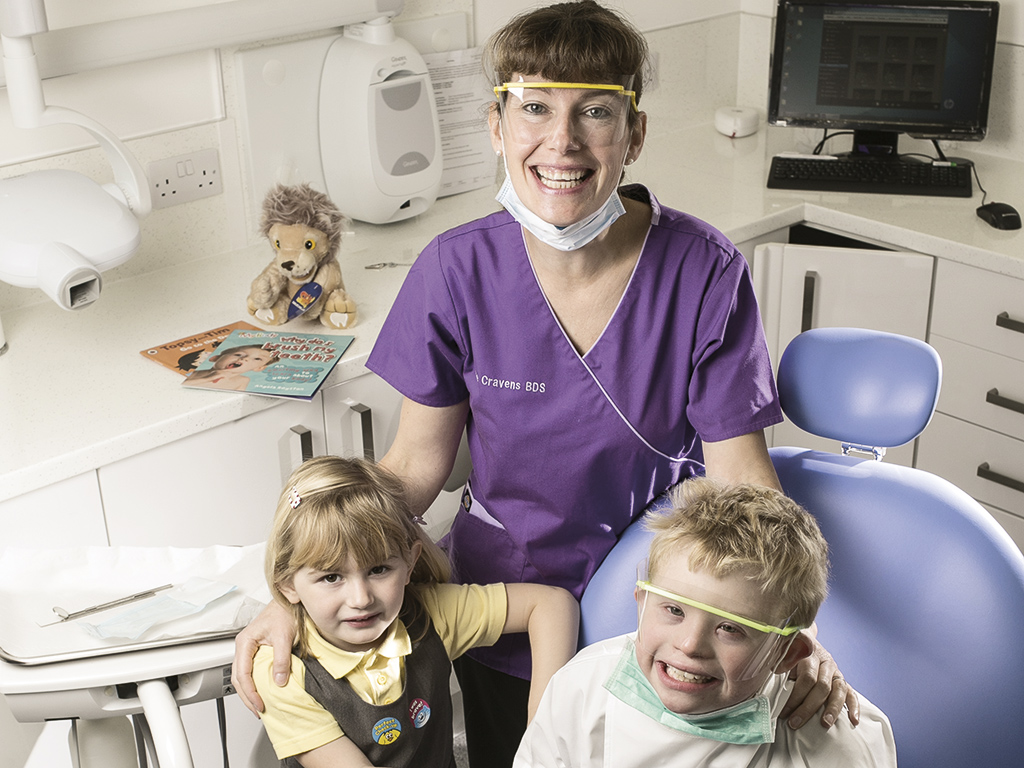
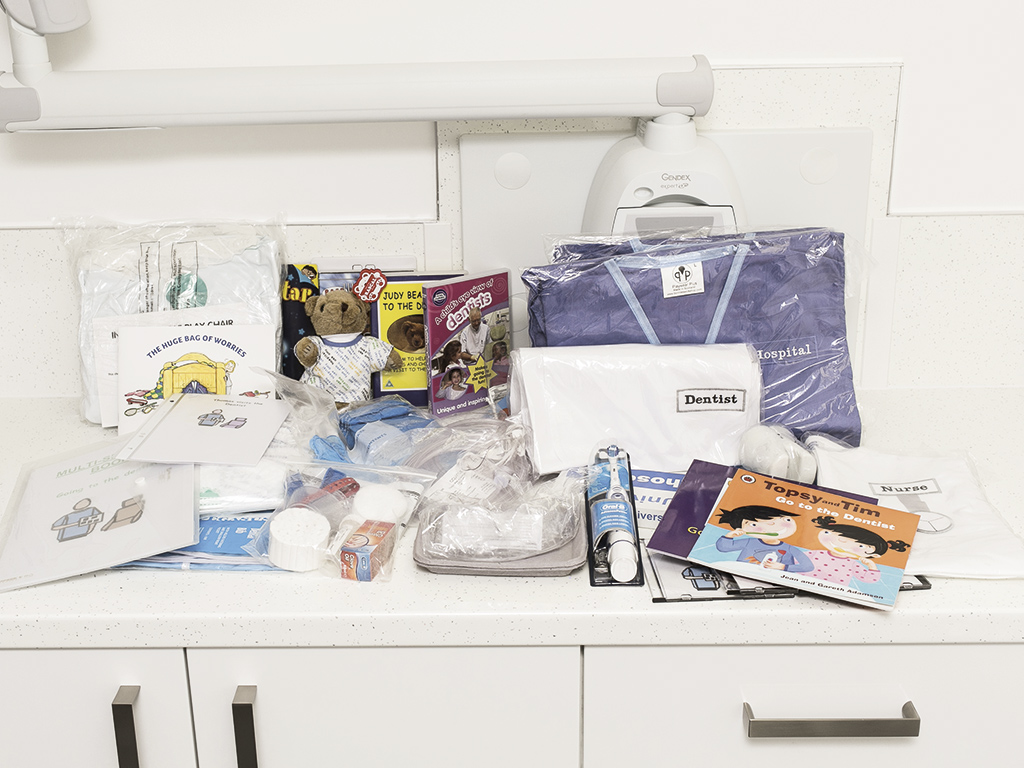
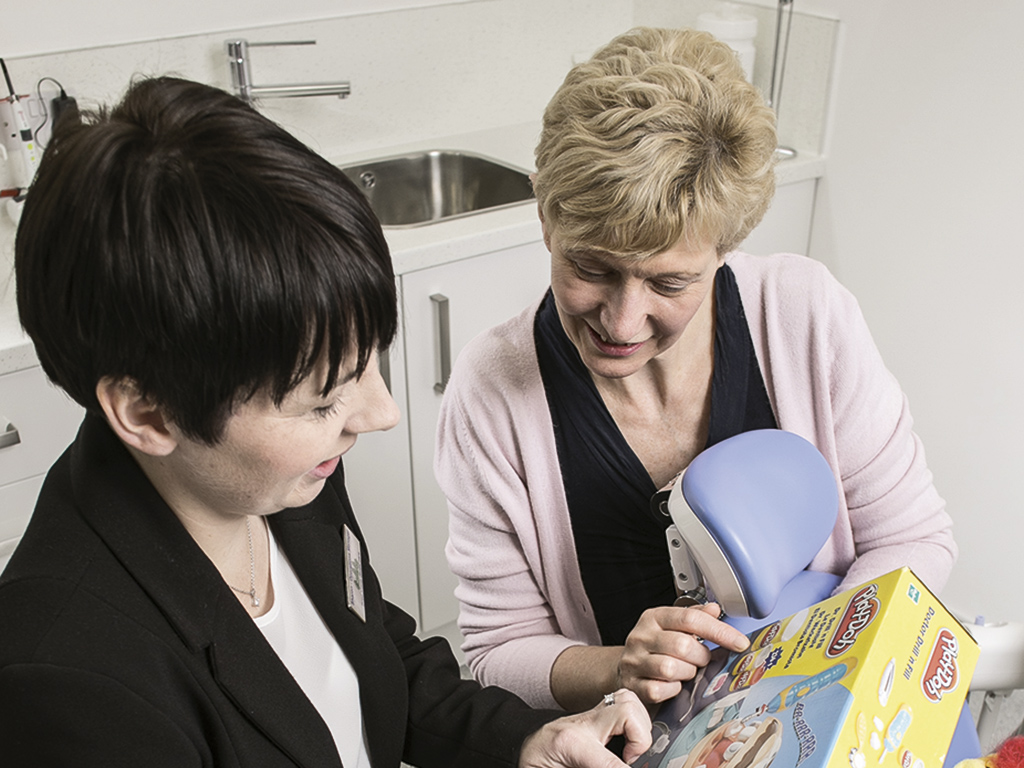
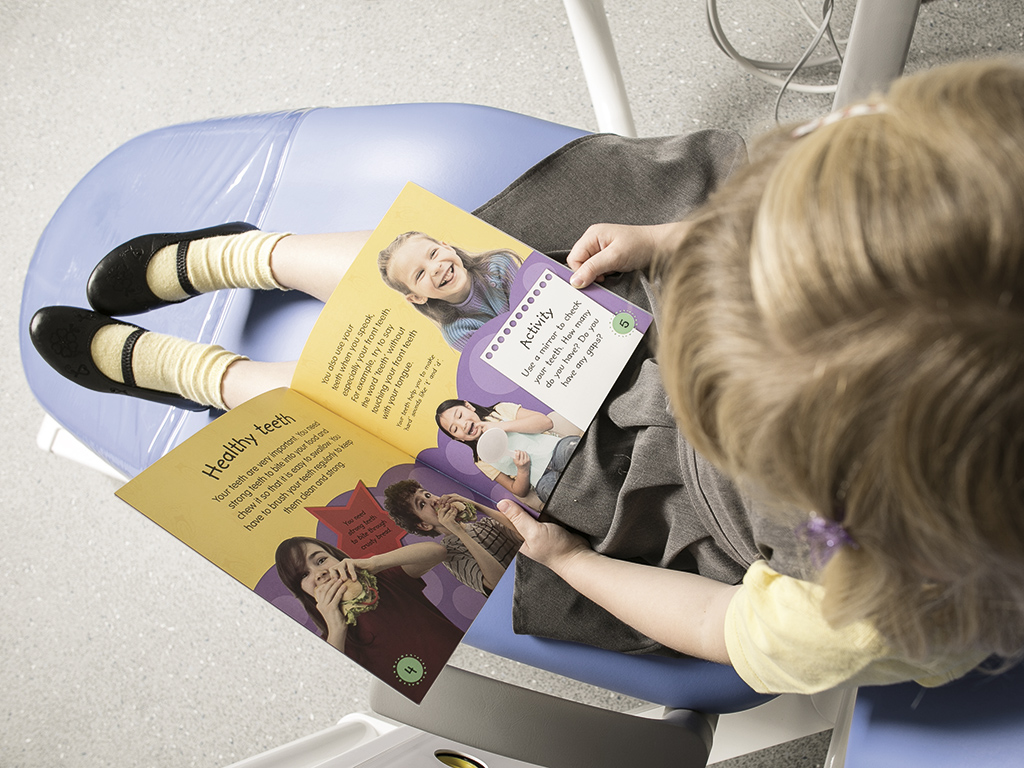
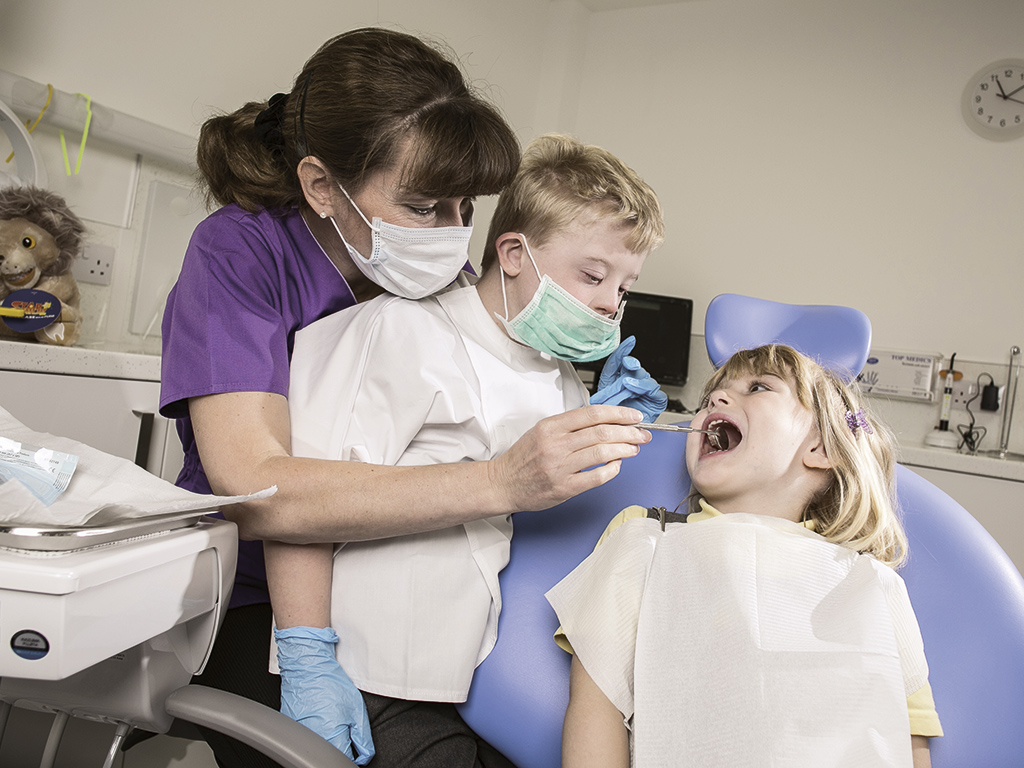
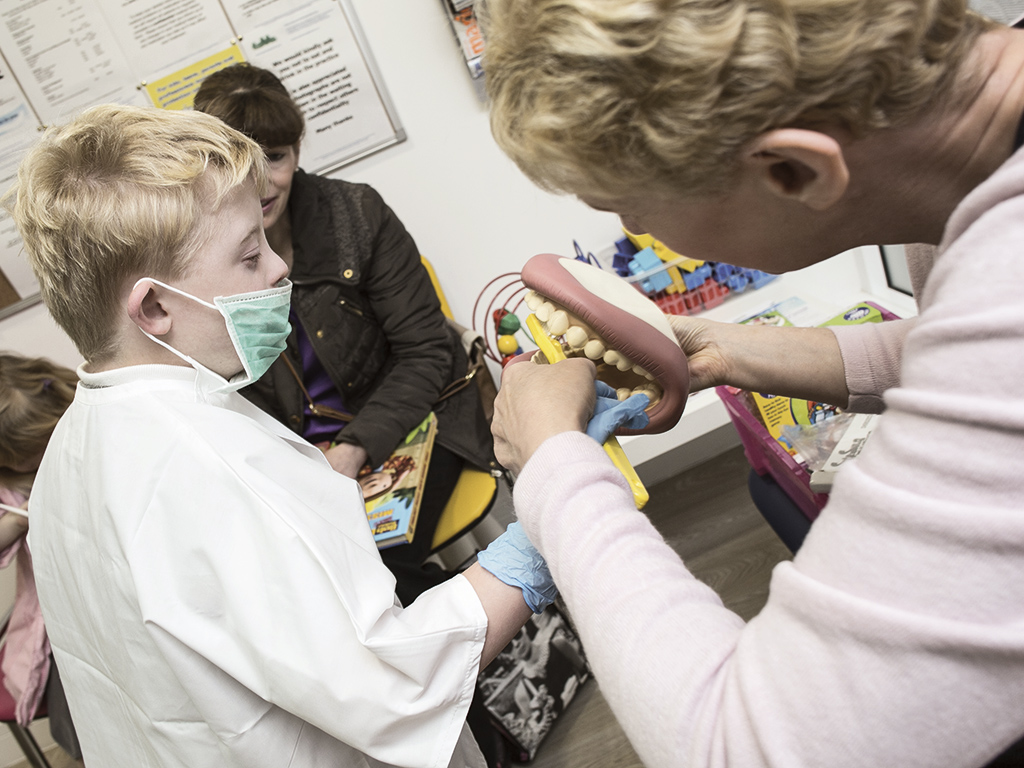
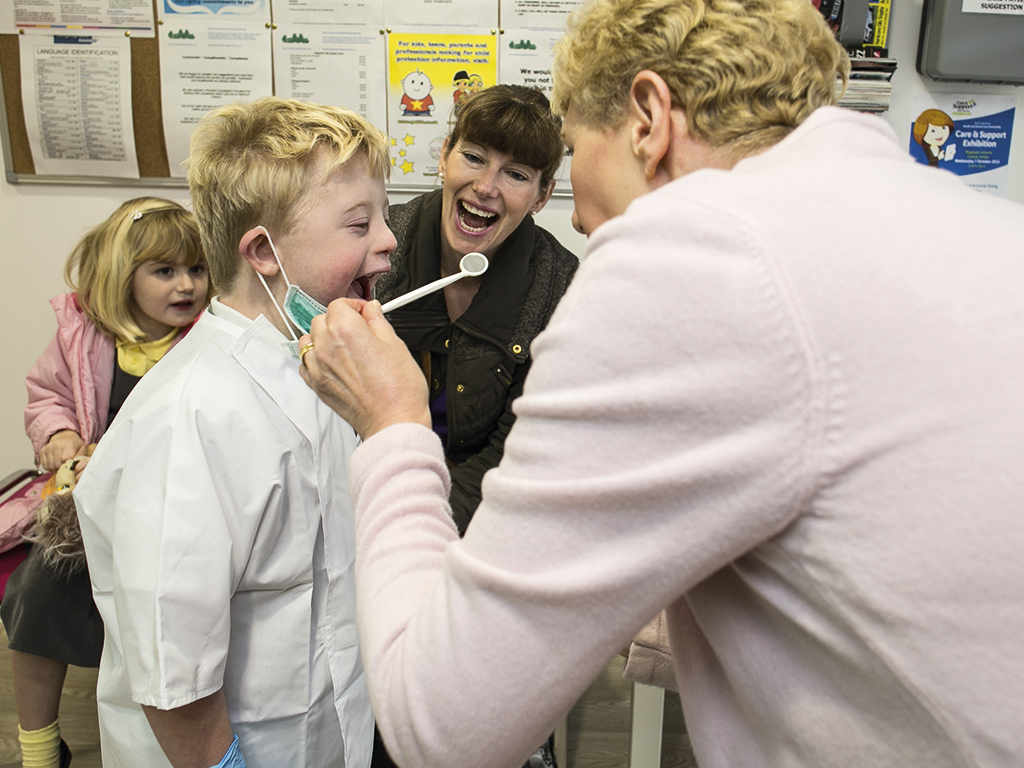
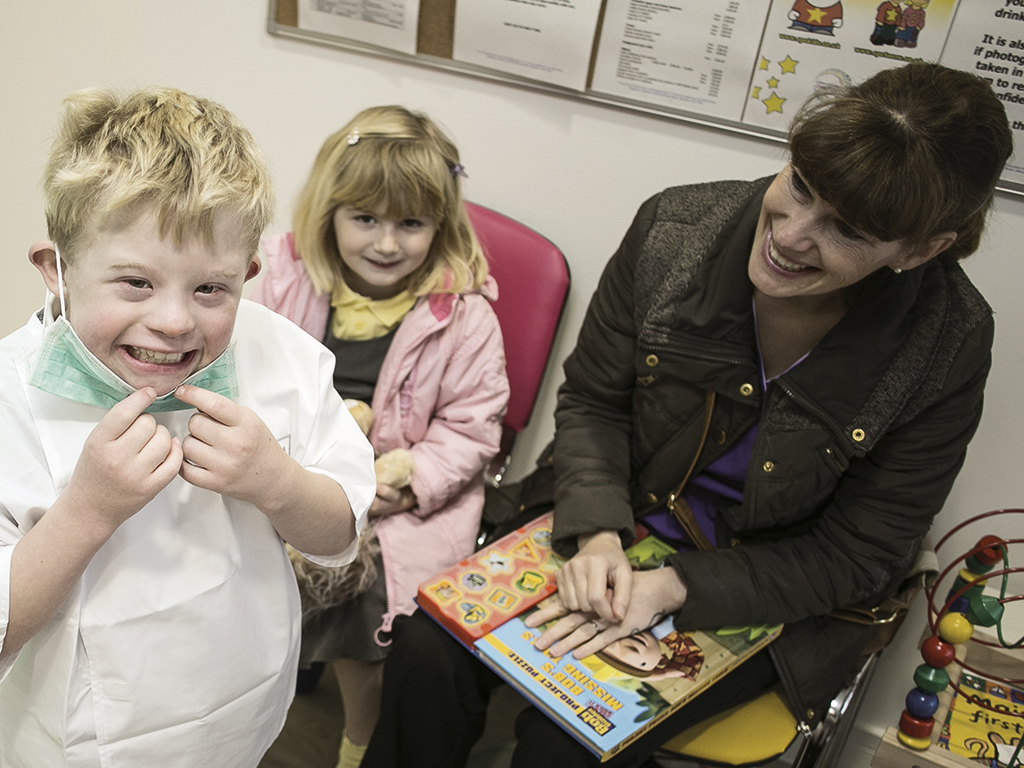
Comments are closed here.